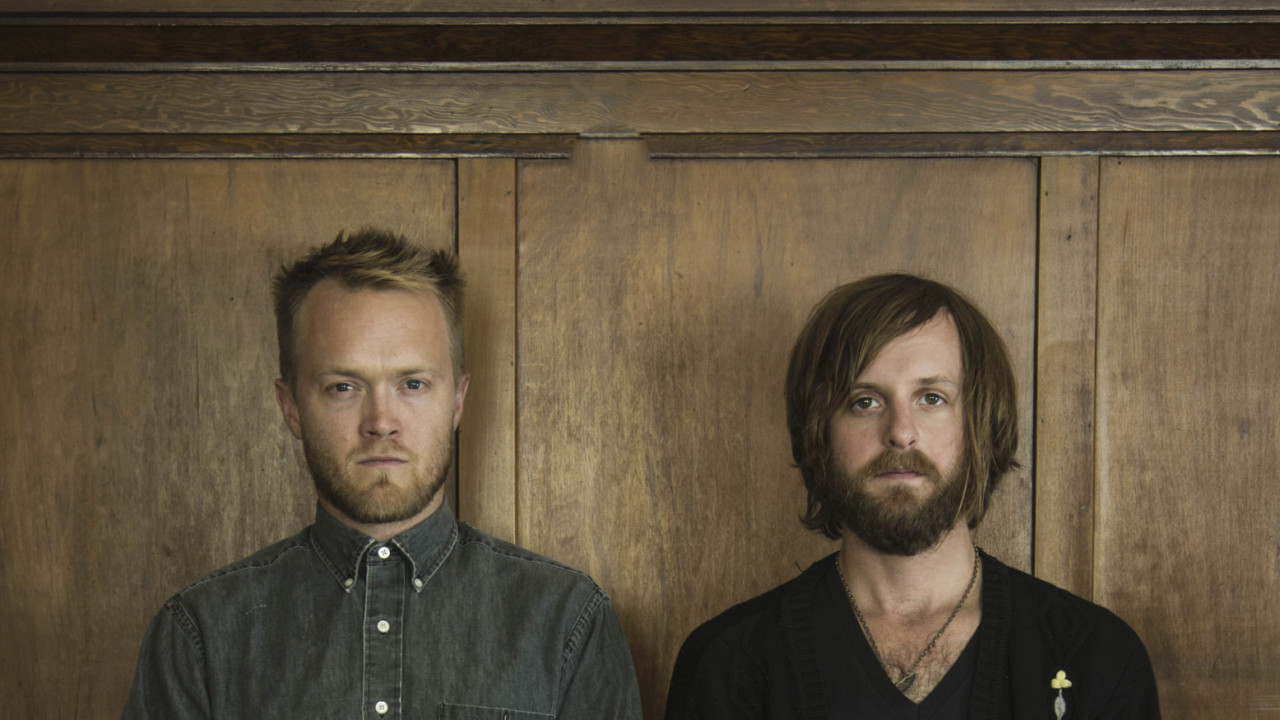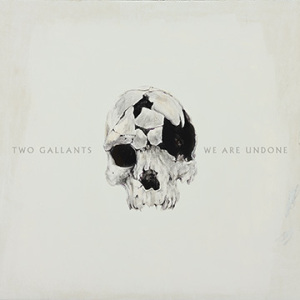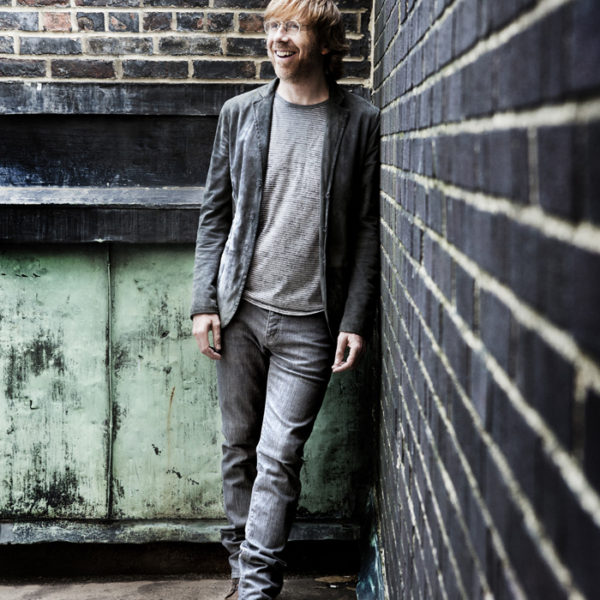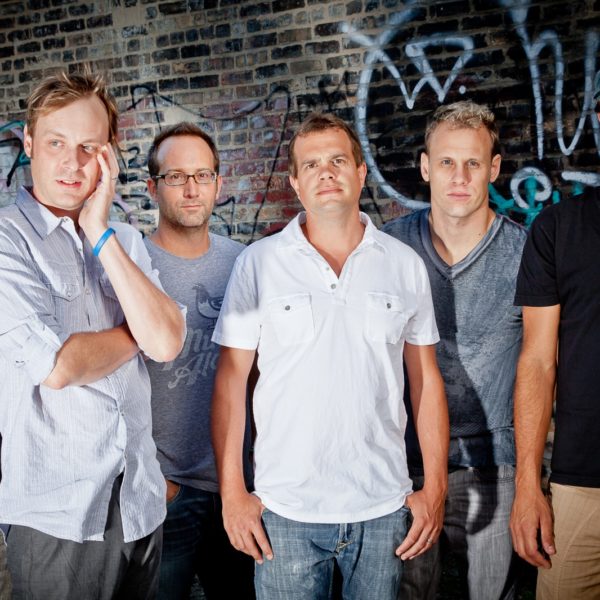
Two Gallants
On February 3rd 2015, the San Francisco based guitar-drum duo Two Gallants released their 5th studio album, We Are Undone, on ATO Records. While singer and guitarist Adam Stephens and drummer Tyson Vogel have stayed true to the two-person format since their acclaimed 2004 debut, The Throes, their sound has evolved considerably over the intervening years. Following 2012’s The Bloom and the Blight, We Are Undone is the band’s second release on ATO. Thematically, the album ranges from songs that attempt to make sense of the dramatically shifting social landscape of their home town, to the illusion of authenticity, impending environmental collapse, and romantic estrangement. Sonically, the thrash blues of songs such as “We Are Undone” and “Some Trouble” is balanced by the austerity of ballads such as “My Man Go” and “There’s So Much I Don’t Know.”
Reached at home, Stephens and Vogel talked about finding inspiration in admitting you don’t have the answers.
You recorded this with Karl Derfler in Panoramic Studio in Stinson Beach; what was working with Karl like? For this one, he just acted more as an engineer than a straight producer, correct?
Adam Stephens: The limitations of playing with essentially two instruments has probably been the most driving force for our sound over the years. It’s like this wall that we continually bump up against and every time it repels us in a new direction. Karl pulled off some incredible things within those restrictions. Karl’s been involved in some amazing records and with a lot of musicians we look up to: Tom Waits, Roky Erickson, The Flamin’ Groovies, just to name a few. The three of us pretty much saw eye-to-eye immediately on what we wanted to hear. I think he was able to capture our sound in a way that was very familiar and very real but somehow new to us as well.
So on the opening song and title track “We Are Undone,” You’re talking about the marketplace, you’re talking about the dry and barren field. And you also say “you sing to the choir/and they know every line.” What was sort of on your mind as you were making the song?
AS: I guess that song is about the illusion of thinking that what you’re doing is of some significance simply because people come out to your shows or because you are told that you make something that moves people in a certain way. But the song is definitely not a statement. I don’t know. It was more of an exploration I guess.
Like, trying to find an answer through a song. It’s not like you have a definite answer. You’re sort of thinking about things out loud.
AS: Yeah. I don’t believe in writing songs with a plan in mind. That saps all the impulse out of it when it should be more like following a lead. The lead I was following with “We Are Undone” was, without being too blunt about it, trying to make sense of this unending pressure to acquire and consume, and usually as conspicuously as possible, that has taken a hold of our culture. Consuming actual material items and consuming the belief system behind it: that our lives and our happiness are absolutely dependent upon those very items. Everyone is aware of the destructive nature of the way that we live, but nobody wants to do away with all of its comforts. And if you, for a second, start to tell someone that the only way we’re going to solve a problem is if we do away with a certain comfort that they’ve grown up with or grown so accustomed to, then people are up in arms and don’t want to do anything about it.
Were you thinking about anything in particular when you wrote this song? Because you’re from San Francisco. Was that something on your mind while you were writing?
AS: Not this song as much. Actually, the last song on the album, “There’s So Much I Don’t Know,” has a lot more to do with that.
How so?
AS: It’s a bit more about the feeling of becoming estranged from the city, from San Francisco. The place that has always been our home has become rather unwelcoming for the very people whose eccentricities had defined the city for so long; people who want to live simply and make art or music or just be weird somewhere. Every place that has housed or staged that oddity and diversity has basically become extremely exclusive or been shut down. The strangeness is gone. That’s kind of the centerpiece of the song I guess.
Tyson Vogel: If you listen to all of our records, we never have ever tried to portray anything that wouldn’t really be there if you were to go see us play live. And I think a lot of that is in the process of creating the songs, too. Also just having faith in that space, but also, giving the simplistic nature of only two members its full due. You have to commit to it fully.
So tell me about the cover? I hear you have something interesting planned.
AS: It’s a drawing by Kevin Earl Taylor of a 160,000 year old fossilized human skull. As far as the fossil record reveals, it’s basically considered to be from the last stage of evolution that preceded modern humans. The idea was to hint at humanity before it had fully developed its self-awareness. When its consciousness was just budding. A stage, obviously, all of us go through in a lifetime when we first begin to realize that we’re actually individuals, separate from our parents and our surroundings.
You and Tyson have been working together for around 12 years, and you’ve known each other for much longer than that, right?
AS: Yeah, we’ve known each other since we were five.
So, as you and Tyson have been doing it for a long time, do you sort of have to push each other in order to keep it fresh? Do you guys have to guard each other and let yourselves fall back on old habits?
AS: Well, I would say the one thing that we try to remind one another of is to not overthink what we’re playing. A lot of times when we have a new song that feels pretty good, we’ll decide to not keep working on it because we don’t want to lose that initial feeling. It’s sort of inevitable that we will. But it’s really important to kind of keep that initial feeling, to be able to maintain that part of the song that was there before it could really be considered a song.
TV: I think there’s something especially raw about being in a band with only two people, there’s a certain set of chemistry or energy that happens. This sort of transferal. And I think that ever since the beginning, it’s been super intimate. Because it’s only us two. And so, with that there comes a lot of freedom. And then there comes a lot of spots where we both have to be able to acclimate to maybe a difference of approach or a creative idea that is new to our process. And there’s a volatile love that comes with that process. I think that with this album, in reference to the albums previous, I think it steps in line with this other sort of expansion of both our personal lives, and our relationships personally. We’re both growing together and in different ways, and learning how to find that balance.


